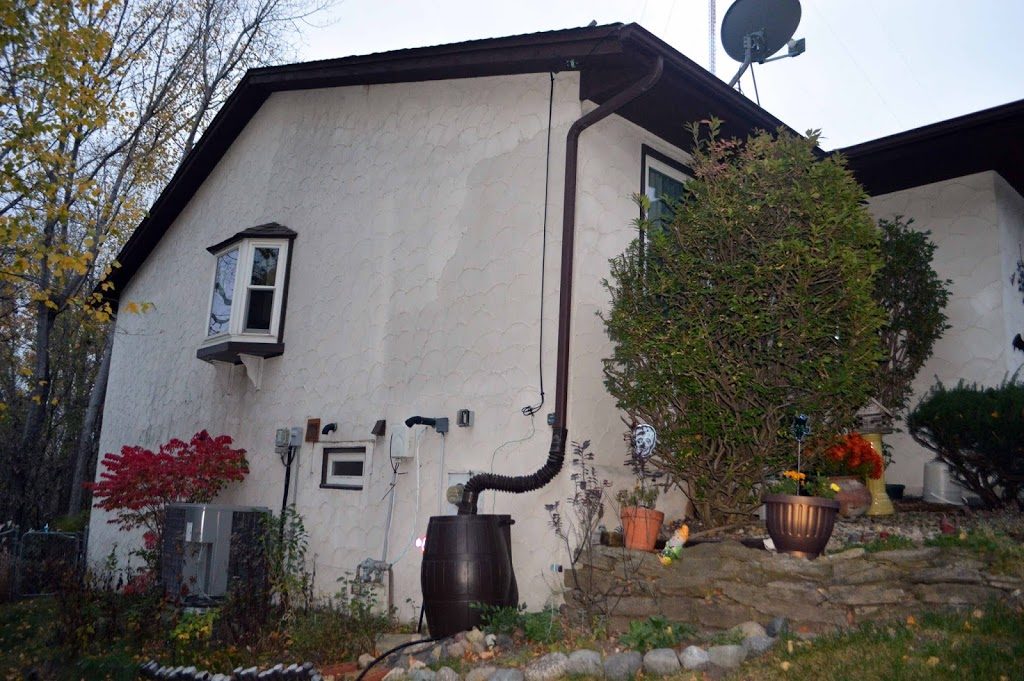
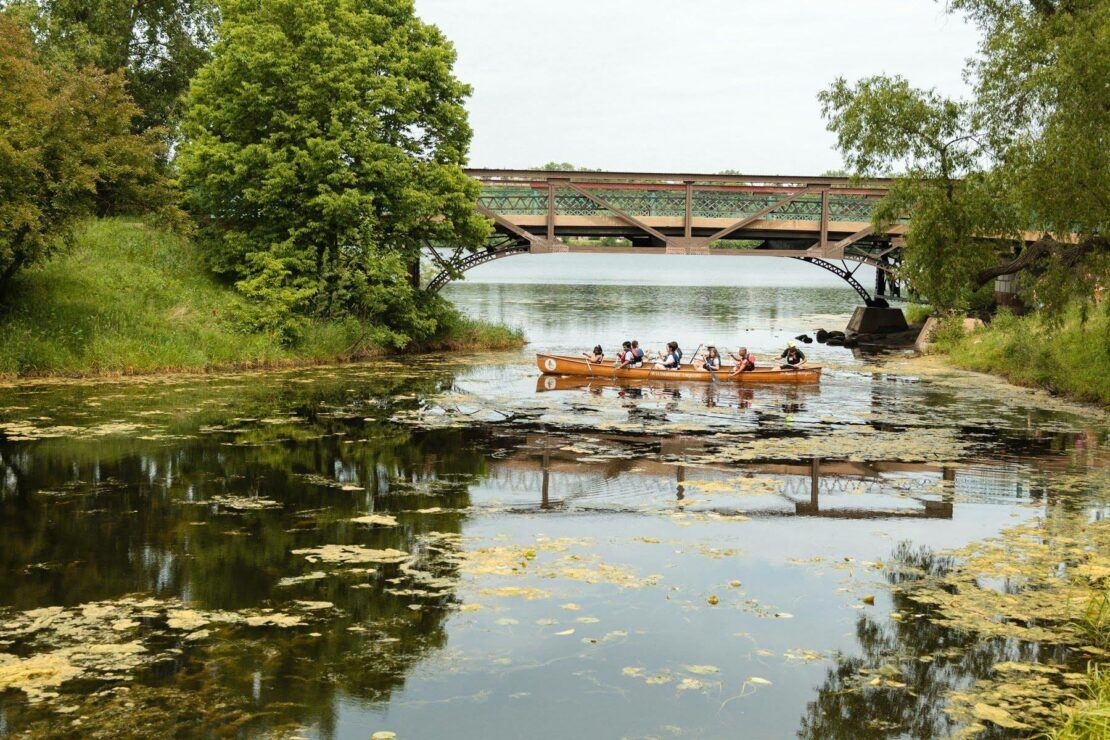
100 rain barrels in 48 hours
by Sage Passi
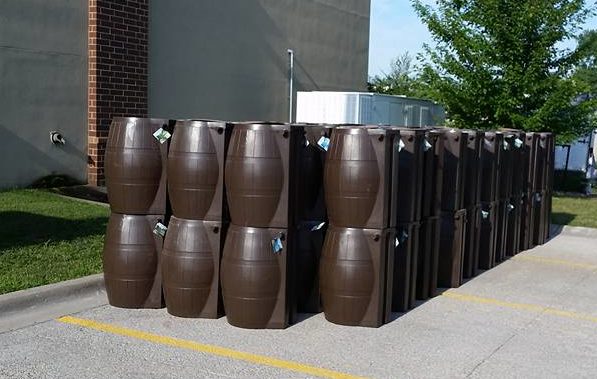 |
|
100 rain barrels waiting for distribution in Shoreview for Paul Gardner’s Master Water Steward capstone project in July. |
Paul implemented his project in July, but I wasn’t able to get out and actually see him in action until much later. In the meantime, he developed a report on the project and has been sharing his analysis in a number of different venues including a recent Master Water Stewards graduation and our annual recognition dinner.
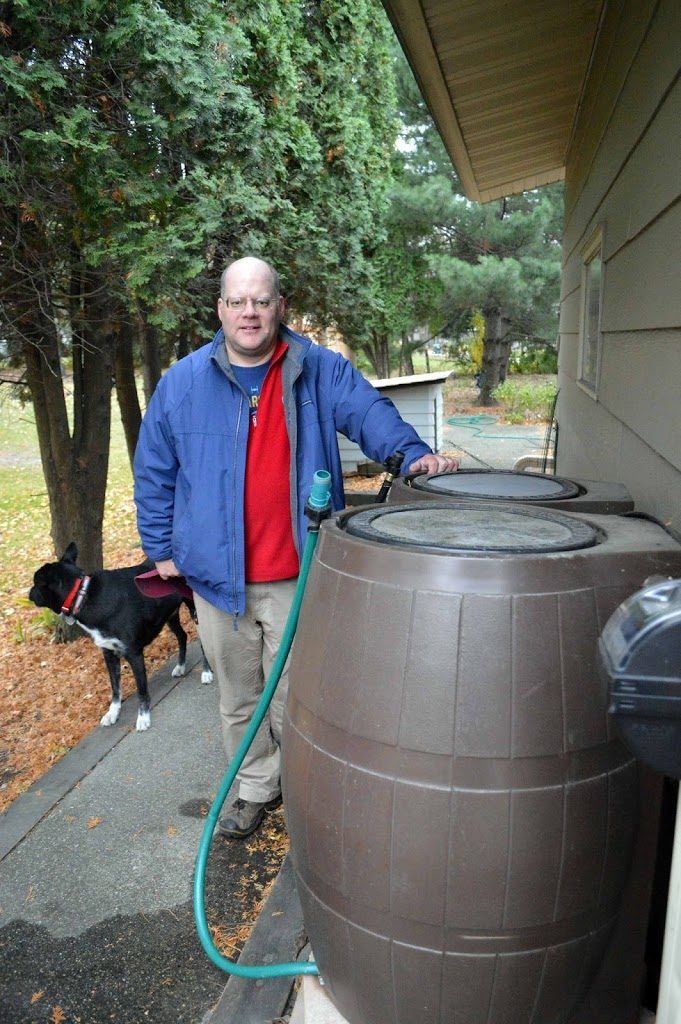 |
| Paul with two of his rain barrels he installed at his own home several years ago. |
In late fall, I followed up with Paul to learn more about his project and to meet a Shoreview resident who purchased a rain barrel through this special program. But before we drove over to Jenny Wood’s house together to see what she was doing to weatherize her rain barrel for the winter, I stopped off at Paul’s house to see what he has already done in his own yard to prevent runoff and conserve water.
Paul and his wife are recent Landscape Ecology Awards Program (LEAP) winners. They received a LEAP award in 2016 for their landscaping, rain garden and rain barrels. He is a former member of the Minnesota House of Representative in District 53A from 2007-2010, a current Ramsey Conservation District supervisor and was the executive director of the Recycling Association of Minnesota until 2006. He was also a member and chair of Shoreview’s Environmental Quality Committee for five years. He is passionate about recycling, energy conservation, reducing runoff and conserving water.
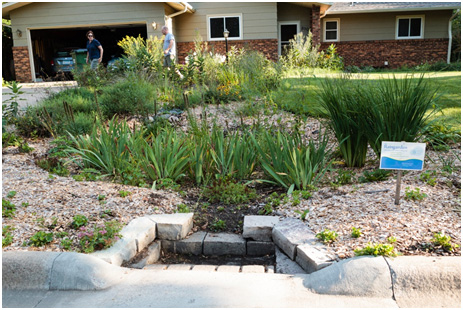 |
|
The Gardner’s rain garden.
|
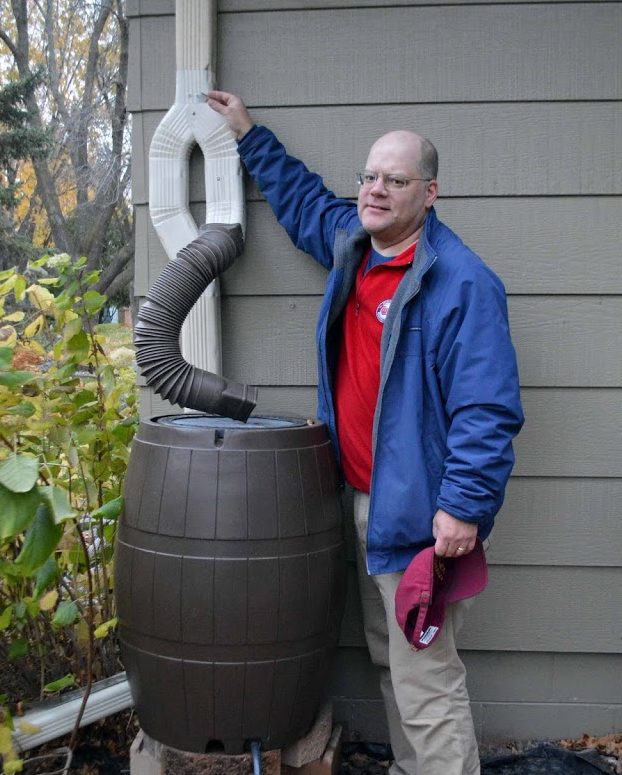 |
| Paul’s diversion system to direct water in his yard where it is needed. |
We waited until Jenny was due to be home from work and then drove over to get some perspective from her about her involvement in the program. Meanwhile, darkness was falling all around us and so was drizzle mixed with snow!
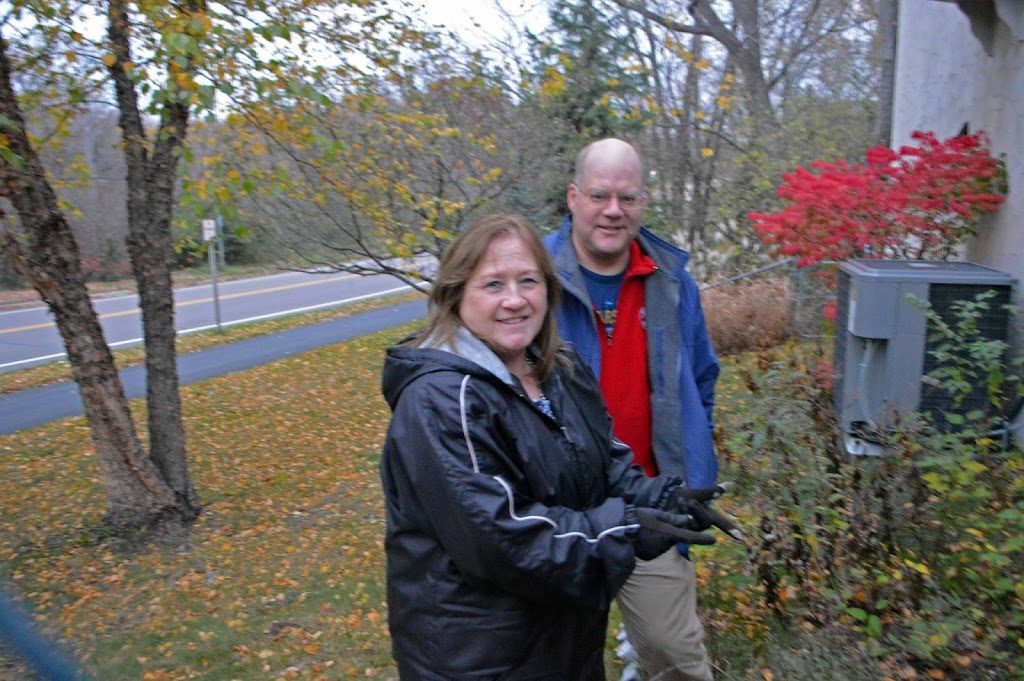 |
| Paul and Jenny Woods, a Shoreview rain barrel recipient. |
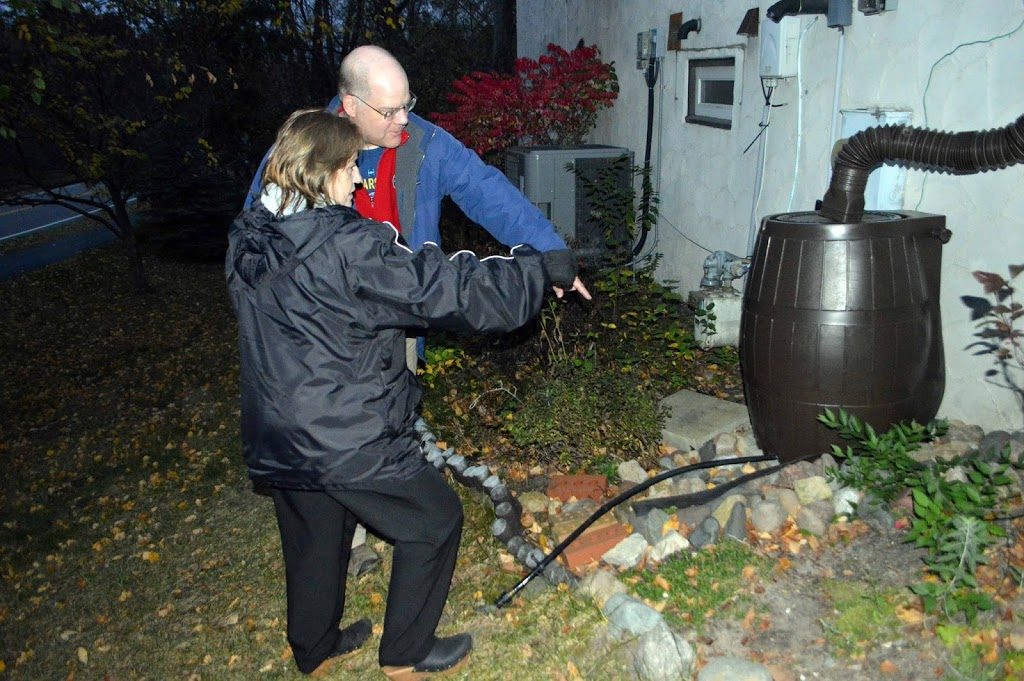 |
| Paul and Jenny prepare to winterize her rain barrel. |
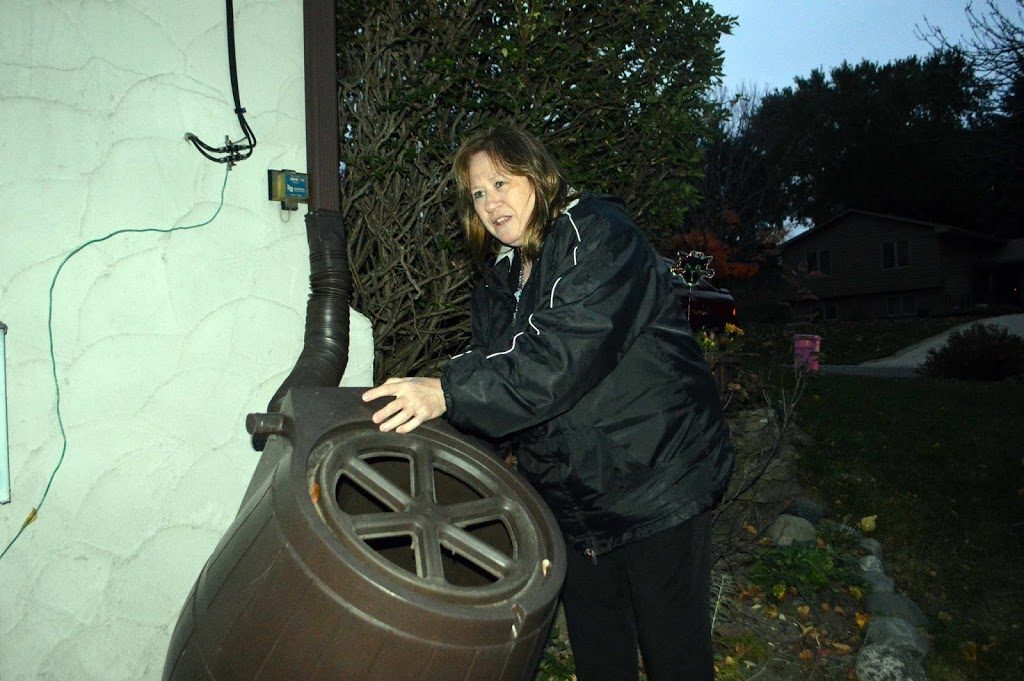 |
| Jenny getting ready to turn the rain barrel upside down so that it does not crack in the winter cold. |
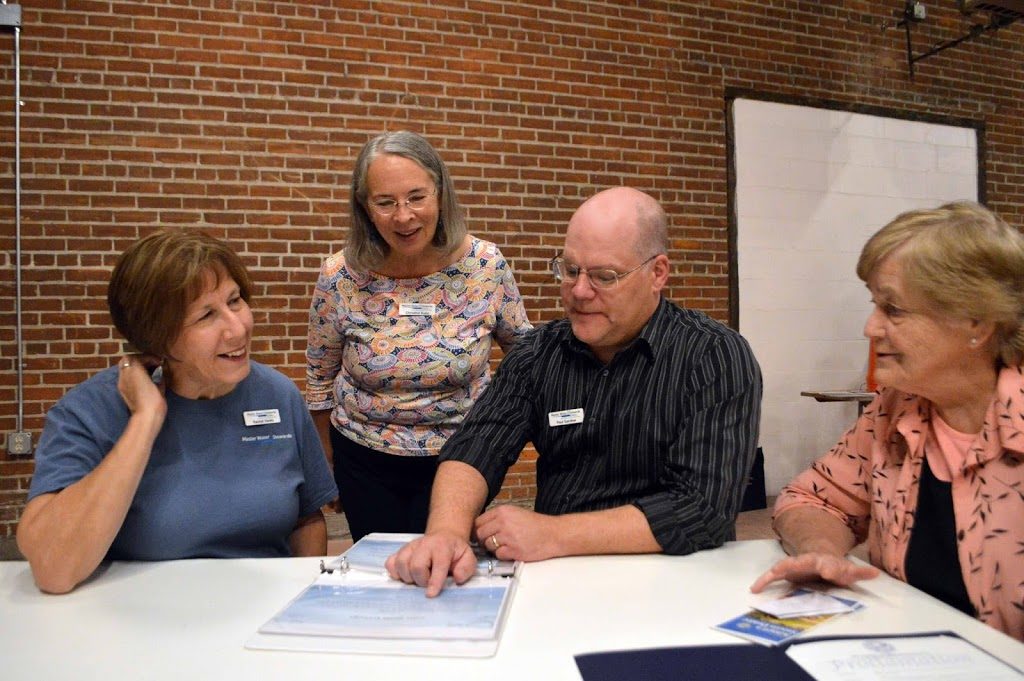 |
| Paul at the Master Water Steward graduation. |
The basic concepts Paul used to develop his project:
-
- Rain barrels are among the simplest and cheapest best management practices for stormwater volume reduction, but they have less impact.
- A typical rain barrel can manage up to 1,400 gallons per year.
- Homes using groundwater for water supply can reduce their use for outdoor purposes.
Within his project, Paul posed two questions:
- If we distribute rain barrels to 100 households, could we get five of those households to consider a rain garden in future years for bigger impact?
- What is the collective impact of 100 barrels — is it equal to a few rain gardens?
 |
| Paul’s targeted rain barrel distribution area in southern Shoreview. |
Because there is limited District staff time to organize and manage sales of rain barrels, train residents on their use, monitor and evaluate their installation, or efficiently handle small money transactions through the cost-share program, Paul proposed this:
- Target several neighborhoods in a subwatershed.
- Use existing Recycling Association of Minnesota “truckload” sales and distribution program for transactions and delivery.
- Use cost share dollars to subsidize distribution to targeted watershed.
- Master Water Stewards provide outreach, education, training and evaluation.
Paul arranged with the Recycling Association of Minnesota (RAM) to take rain barrels orders online, coordinated a distribution event at Shoreview Public Works in July, and arranged for the sales and event to be promoted through the city’s WaterSmart participant list-serve.
Here are the details of his process and his outcomes.
- The City of Shoreview emailed 1,600 residents with a link to the RAM ordering page.
- 98 rain barrels sold out in 48 hours online to 72 customers (some bought multiples).
- Almost all barrels were picked up at Shoreview Public Works on July 15 in three hours.
- He followed up with a few no-shows at the sale and delivered those barrels.
- Six people asked about cost share opportunities for rain gardens and other best management practices.
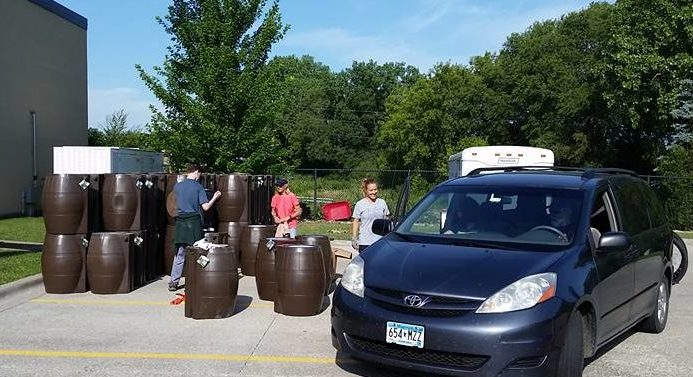
Using Survey Monkey, Paul learned that three-quarters of the people who purchased barrels through this special promotion were unaware that RWMWD offers cost-share funds for storm water best management practices. Paul is following up with providing cost-share information for them. He also offered installation support for those who requested it and will be tracking participants over the next year to ensure that the barrels get installed and are being used properly.
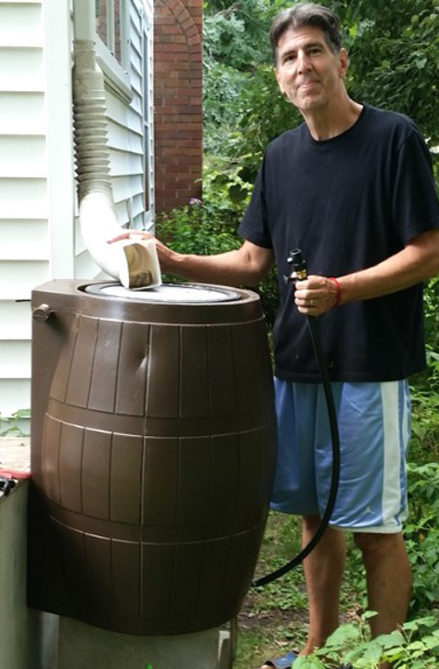 |
| A proud rain barrel owner in Shoreview. |
Some of the lessons Paul said he learned:
- Having a targeted email list from the city is a big time saver.
- Twin Cities area Master Water Stewards can partner with Recycling Association of Minnesota in the future anywhere in the greater metro area.
- $20-30 is the right price in order to get highest level of participation; expect $50-65 subsidy per barrel.
- The subsidy for 100 barrels gets you about as much water treatment and reuse as a few rain gardens.
- An estimated 10 percent of the purchasers will need some help with setup.
- RAM partnership requires no storage, no cash transactions and no transportation.
When he asked the residents why they wanted a rain barrel he received the following answers:
- 41 percent wanted to conserve tap water.
- 18 percent wanted to decrease runoff.
- 8 percent wanted to get chemical-free water.
- 9 percent gave various other reasons.
We’d like to thank Paul for investing his time and energy to analyze and develop a potential game plan for the efficient and productive use of rain barrels.
